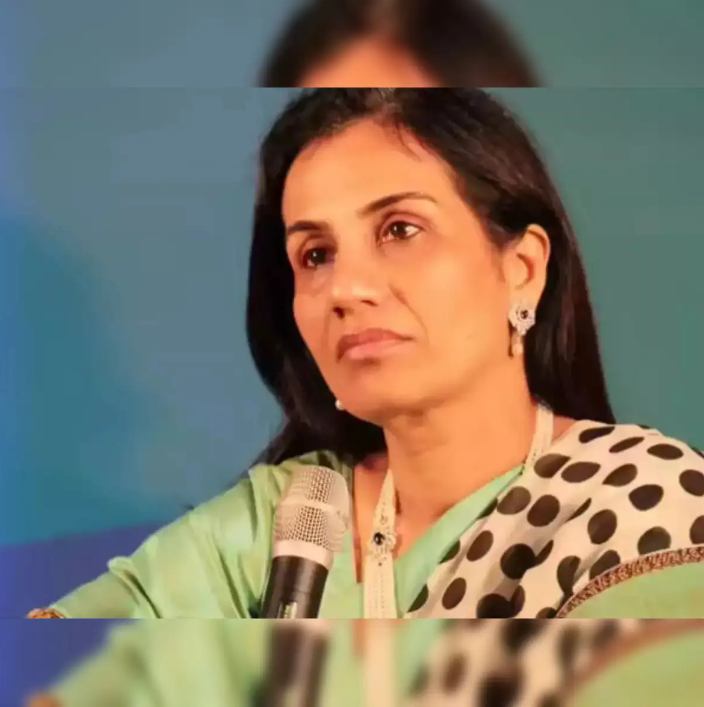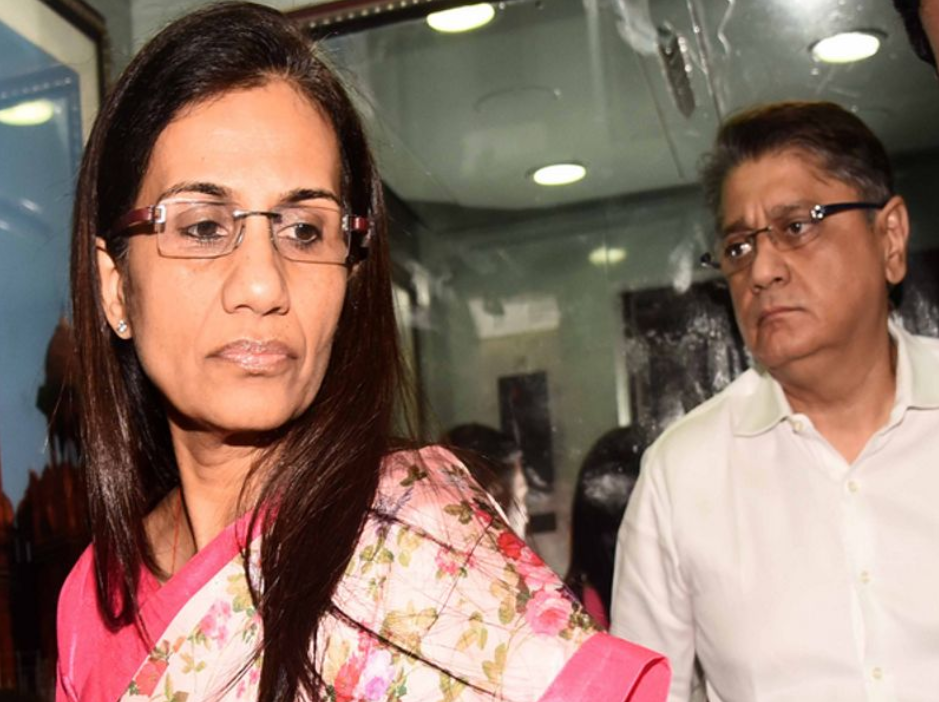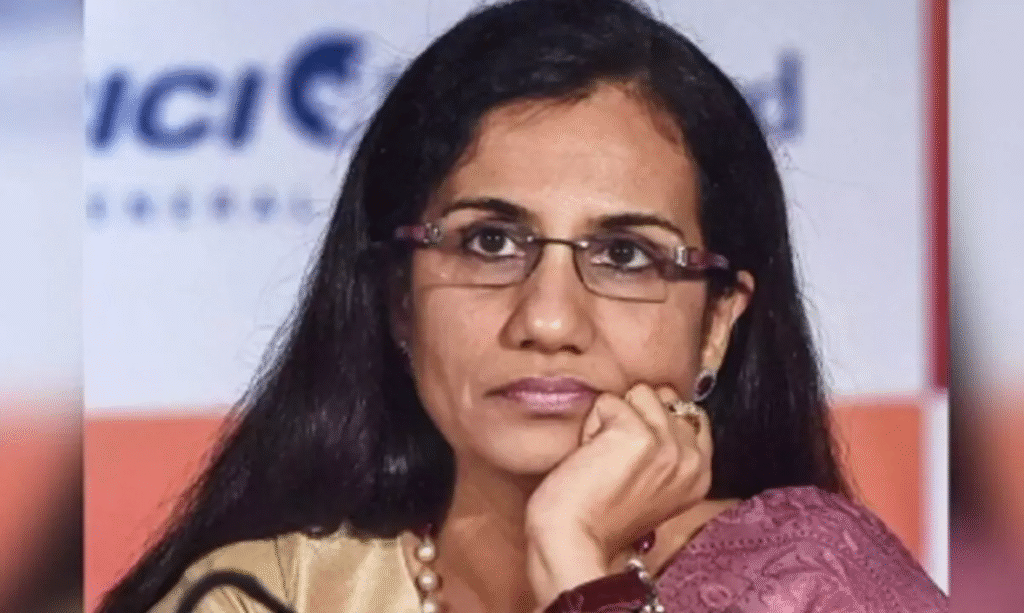Chanda Kochhar Guilty ₹64 Crore Bribe 2025: Shocking Corporate Fall
On July 3, 2025, a Special Appellate Tribunal under the PMLA (Prevention of Money Laundering Act) declared Chanda Kochhar, former MD & CEO of ICICI Bank, guilty of accepting a ₹64 crore bribe in return for sanctioning a ₹300 crore loan to the Videocon Group. The ruling reinforces the Enforcement Directorate’s case, overturning earlier clean chits and validating investigations into conflict of interest and money laundering.
1. Background: Rise, Loan, and Allegations
A. Kochhar’s Legacy
Chanda Kochhar’s ascent in the financial world was historic—starting as a management trainee in 1984 and becoming ICICI Bank’s CEO in 2009. She shattered glass ceilings and earned accolades—only to witness her legacy shattered by corruption allegations.
B. The Videocon Loan
Between June 2009 and 2011, ICICI Bank sanctioned loans totaling roughly ₹3,250 crore to companies in the Videocon Group, including:
₹300 crore to Videocon International Electronics Ltd (VIEL)
Loans to other group companies totaling ₹1,875 crore
2. The ₹64 Crore Bribe: A Classic Quid Pro Quo
The enforcement agencies allege:
On September 7, 2009, the ₹300 crore loan was disbursed to VIEL.
On September 8, ₹64 crore was transferred from Videocon’s Supreme Energy Pvt. Ltd (SEPL) to NuPower Renewables Ltd (NRPL)—established by Deepak Kochhar, Chanda’s husband.
- While the company was listed as owned by Videocon’s promoter Venugopal Dhoot, tribunal found Deepak Kochhar effectively controlled it, establishing conflict of interest.
3. Ethical Violations & Institutional Failures
The Srikrishna Panel (2019), led by a former Supreme Court Justice, concluded:
Kochhar violated ICICI’s Code of Conduct and disclosure norms.
Her failure to recuse herself from committee decisions amounted to gross negligence and fiduciary breach.
ICICI Bank responded by:
Declaring her exit as “termination for cause”
Clawing back bonuses awarded between 2009 and 2018
4. Legal History: FIR, Arrests, and Bail
A. Timeline of Investigation:
December 2017 – March 2018: CBI opened preliminary enquiry.
October 2018: Kochhar resigned amid conflict-of-interest probe.
January 2019: ICICI board approved FIR; ED invoked PMLA and attached assets worth ₹78 crore.
B. Arrests & Judicial Back-and-Forth
December 2022: CBI arrested Kochhar, Deepak Kochhar, and Dhoot.
January 2023: Bombay High Court—deemed arrests “arbitrary” and granted interim bail.
February 2024: HC barred SFIO from coercive action beyond office hours, recognizing Kochhars as senior citizens.
C. Supreme Court Notices
In September 2024, Supreme Court issued notice challenging Bombay HC’s bail order, signaling higher court scrutiny.
5. Tribunal Verdict: What Changed
On July 3, 2025, the PMLA Appellate Tribunal:
- Overturned earlier asset-release order, calling it flawed and ignoring key evidence.
- Found transfer from SEPL to NRPL was not genuine business transaction—but a bribe directly linked to loan sanction.
- Vlidated ED’s material—especially statements under Section 50 of PMLA and paper trail.
- Made findings: conflict of interest, suppression of disclosure, misuse of position
6. Broader Impacts
A. Corporate Governance Lessons
This case underscores:
The need for transparency in board decisions.
Revised loan authorization protocols and conflict-of-interest checks in financial institutions.
B. Public Trust and Reputation
Kochhar’s career collapse—from Padma Bhushan awardee to disgraced banker—shook public confidence in India’s private banking sector.
C. Regulatory Reforms
7. Key Case Takeaways
| Aspect | Key Insight |
|---|---|
| Loan Sanction | ₹300 crore to Videocon affiliate |
| Bribe Amount | ₹64 crore routed to husband’s company |
| Violation | Fiduciary duty, conflict of interest |
| Tribunal Ruling | Guilty under PMLA & conflict norms |
| Legal Developments | FIR → Arrest → Bail → Tribunal verdict |
| Institutional Response | Termination for cause, clawback of bonuses |
| Systemic Concern | Oversight gaps in private sector banking |
Final Thoughts
The tribunal’s verdict is a landmark in banking ethics and corporate accountability in India. It affirms that even top-ranked executives are not beyond scrutiny. The rigorous cross-check of loan approvals, financial transactions, and governance protocols is overdue.
As the matter now proceeds to trial courts, enforcement agencies may initiate recovery of attached assets and consider criminal prosecution under Prevention of Corruption Act.
Whether this case becomes a catalyst for wider reform—or fades as isolated scandal—depends on sustained legal follow-through and institutional introspection across India’s financial sector.


